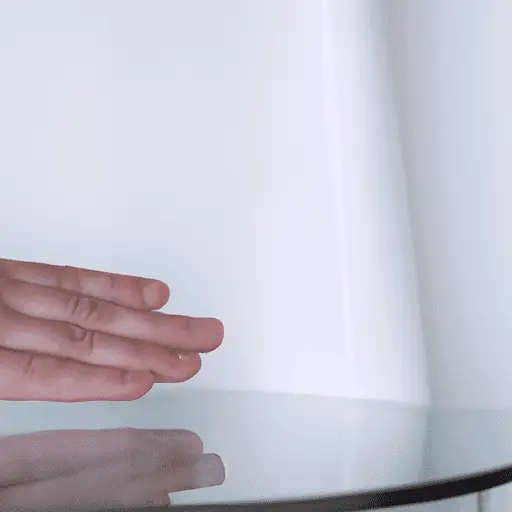Managing Hyperhidrosis Flare-ups: Useful Tips
-
Table of Contents
- Managing Hyperhidrosis Flare-ups: Useful Tips
- Key Takeaways
- Understanding Hyperhidrosis
- Managing Hyperhidrosis Flare-ups
- Stress Management
- Diet Modifications
- Proper Hygiene
- Medical Treatments
- FAQ Section
- What causes hyperhidrosis?
- Can hyperhidrosis be cured?
- Does hyperhidrosis go away with age?
- Can hyperhidrosis be prevented?
- Should I see a doctor for hyperhidrosis?
- Conclusion
- Further Analysis
- References
Managing Hyperhidrosis Flare-ups: Useful Tips

[youtubomatic_search]
Key Takeaways
- Hyperhidrosis is a medical condition characterized by excessive sweating, which can be managed with lifestyle changes, medications, and medical procedures.
- Stress management, diet modifications, and proper hygiene can help control hyperhidrosis flare-ups.
- Topical treatments, oral medications, and medical procedures like iontophoresis and Botox injections can be effective in managing severe cases of hyperhidrosis.
- Hyperhidrosis can significantly impact a person’s quality of life, but with proper management, individuals can lead normal, productive lives.
- Consulting with a healthcare professional is crucial in determining the most effective treatment plan for managing hyperhidrosis.
Understanding Hyperhidrosis
Hyperhidrosis is a medical condition characterized by excessive sweating, often unrelated to heat or physical activity. According to the International Hyperhidrosis Society, approximately 3% of the population suffers from hyperhidrosis, with the underarms, palms, soles, and face being the most commonly affected areas1.
While not life-threatening, hyperhidrosis can significantly impact a person’s quality of life, causing social, emotional, and occupational distress. However, with proper management, individuals with hyperhidrosis can lead normal, productive lives.
Managing Hyperhidrosis Flare-ups
Managing hyperhidrosis involves a combination of lifestyle changes, medications, and medical procedures. Here are some useful tips:
Stress Management
Stress is a common trigger for hyperhidrosis flare-ups. Techniques such as deep breathing exercises, yoga, and meditation can help manage stress levels and reduce sweating2.
Diet Modifications
Certain foods and drinks, such as spicy foods, caffeine, and alcohol, can trigger excessive sweating. A balanced diet rich in fruits, vegetables, and whole grains can help manage hyperhidrosis symptoms3.
Proper Hygiene
Regular bathing, using antiperspirants, and wearing breathable fabrics can help control sweat and prevent body odor4.
Medical Treatments
For severe cases of hyperhidrosis, medical treatments may be necessary. These can include topical treatments, oral medications, and medical procedures like iontophoresis and Botox injections5.
FAQ Section
What causes hyperhidrosis?
Hyperhidrosis can be primary (idiopathic) or secondary. Primary hyperhidrosis has no identifiable cause, while secondary hyperhidrosis is caused by underlying health conditions or medications6.
Can hyperhidrosis be cured?
While there is currently no cure for hyperhidrosis, the condition can be effectively managed with lifestyle changes, medications, and medical procedures7.
Does hyperhidrosis go away with age?
Hyperhidrosis does not typically go away with age. In fact, it can sometimes worsen over time. However, with proper management, the symptoms can be controlled8.
Can hyperhidrosis be prevented?
While hyperhidrosis cannot be prevented, flare-ups can be managed with lifestyle modifications and medical treatments9.
Should I see a doctor for hyperhidrosis?
Yes, if excessive sweating is causing distress or impacting your daily life, it’s important to consult with a healthcare professional to determine the most effective treatment plan10.
Conclusion
Hyperhidrosis is a medical condition that can significantly impact a person’s quality of life. However, with proper management involving stress management, diet modifications, proper hygiene, and medical treatments, individuals with hyperhidrosis can lead normal, productive lives. Consulting with a healthcare professional is crucial in determining the most effective treatment plan.
[youtubomatic_search]
Further Analysis
In conclusion, managing hyperhidrosis involves a combination of lifestyle changes, medications, and medical procedures. Stress management, diet modifications, and proper hygiene can help control hyperhidrosis flare-ups. For severe cases, medical treatments such as topical treatments, oral medications, and procedures like iontophoresis and Botox injections can be effective. It’s important to consult with a healthcare professional to determine the most effective treatment plan.
References
- International Hyperhidrosis Society. (n.d.). Facts and stats. Retrieved from https://www.sweathelp.org/home/types-of-hyperhidrosis.html
- Mayo Clinic. (2020). Hyperhidrosis. Retrieved from https://www.mayoclinic.org/diseases-conditions/hyperhidrosis/symptoms-causes/syc-20367152
- WebMD. (2019). Hyperhidrosis: Tips for managing. Retrieved from https://www.webmd.com/skin-problems-and-treatments/hyperhidrosis-tips#1
- American Academy of Dermatology. (n.d.). Hyperhidrosis: Diagnosis and treatment. Retrieved from https://www.aad.org/public/diseases/a-z/hyperhidrosis-treatment
- Harvard Health Publishing. (2019). Excessive sweating (hyperhidrosis). Retrieved from https://www.health.harvard.edu/a_to_z/excessive-sweating-hyperhidrosis-a-to-z


